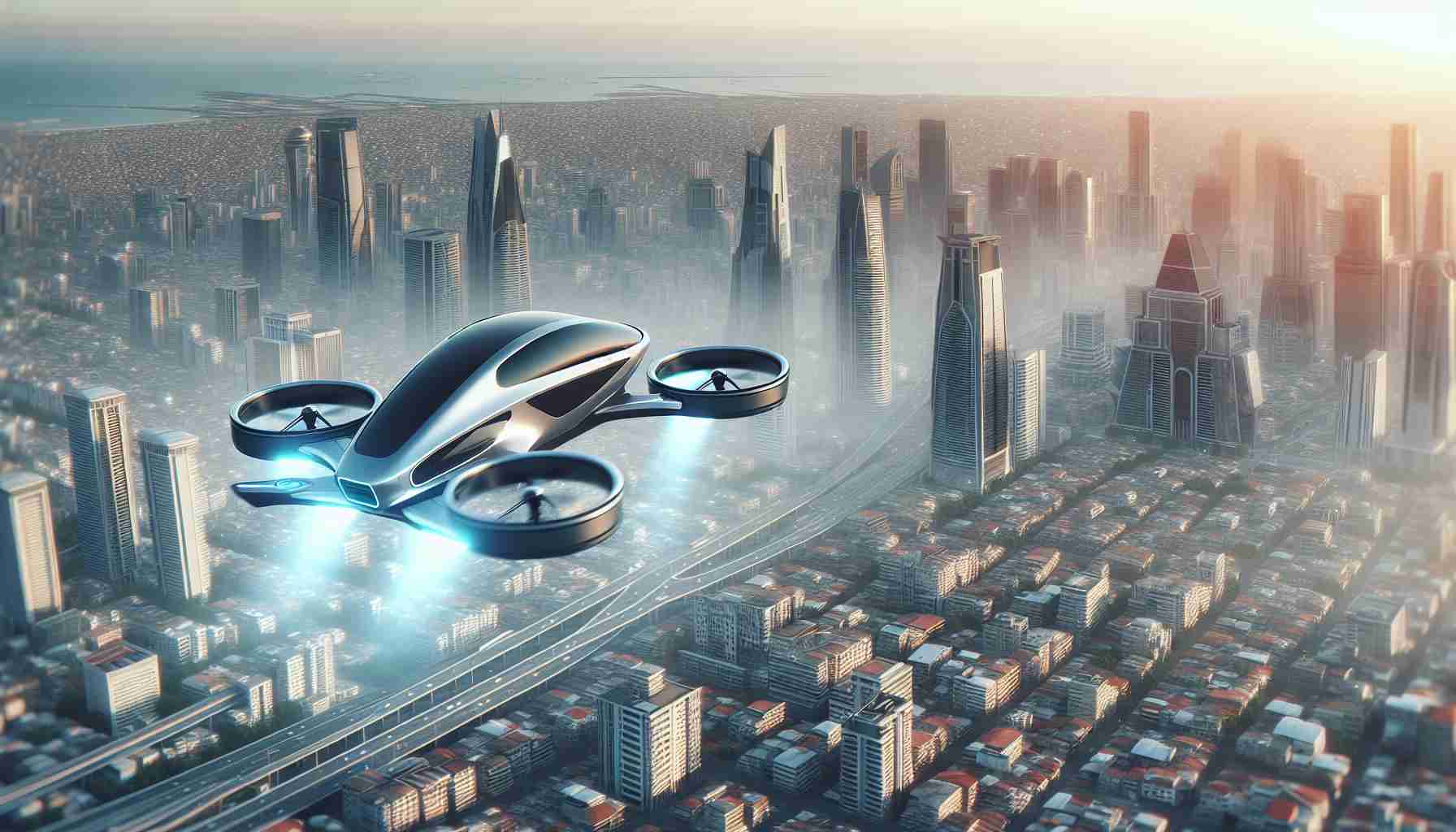
The dawn of flying cars is upon us. For decades, the idea of personal aircraft has been a figment of our imagination, but recent advancements are bringing this fantasy closer to reality. Leading the charge is CycloTech, an innovative Austrian firm introducing two groundbreaking electric vertical take-off and landing (VTOL) vehicles—the BlackBird and CruiseUp. Expected to reshape personal and urban transport by 2025, these prototypes are a testament to the future of mobility.
The BlackBird, with its impressive six CycloRotors, promises enhanced safety and maneuverability, even in scenarios where one engine fails. This groundbreaking propulsion system allows for remarkable 360-degree movement, enabling vertical takeoff, hovering capabilities, and precision mid-air braking. Measuring 16 feet in length, the BlackBird achieves speeds of 75 mph and supports a payload of up to 750 pounds, making it ideal for both passengers and deliveries, all while maintaining a focus on sustainability.
Meanwhile, the CruiseUp emerges as a compact eVTOL designed for urban commuters. Slightly larger than conventional vehicles, it features two engines with a top speed of 93 mph, making it a feasible solution for bypassing congested roads. The innovative designs of both models emphasize clean energy and address pressing urban issues like pollution and traffic jams, heralding a new age in transportation.
With test flights planned for 2025, CycloTech is poised to bring personal air mobility to consumers, potentially changing the way we navigate our cities for good.
The Future of Urban Air Mobility: CycloTech’s Game-Changing VTOL Innovations
The dream of flying cars is slowly morphing into reality, with CycloTech leading the way in urban air mobility through their two innovative electric vertical take-off and landing (VTOL) vehicles: the BlackBird and CruiseUp. These remarkable aircraft are set to redefine personal and urban transport with test flights scheduled for 2025, promising a transformative shift in how we navigate congested cities.
Key Features of CycloTech VTOLs
1. BlackBird Specifications:
– Propulsion System: Equipped with six CycloRotors that offer exceptional safety, enabling operation even if one engine fails.
– Performance: Capable of speeds up to 75 mph, it measures 16 feet in length and holds a payload capacity of 750 pounds.
– Maneuverability: Capable of 360-degree movements, vertical takeoff, and precision mid-air braking, providing a unique travel experience.
2. CruiseUp Specifications:
– Design and Capacity: Slightly larger than a standard road vehicle, the CruiseUp features two engines and reaches top speeds of 93 mph.
– Urban Utility: Designed specifically for city commuters, facilitating quick and efficient travel above traffic jams.
– Sustainability Focus: Emphasizes clean energy solutions, addressing modern urban challenges such as pollution.
Pros and Cons
Pros:
– Reduced Traffic Congestion: Flying cars could significantly lessen road traffic, making commutes faster and more efficient.
– Environmental Benefits: With electric power, both models aim to minimize carbon footprints compared to traditional vehicles.
– Safety Innovations: The dual-engine and multi-rotor systems enhance reliability and safety in the air.
Cons:
– Regulatory Challenges: Airspace regulations may pose hurdles in the widespread adoption of personal aircraft.
– Infrastructure Needs: Development of landing zones and charging stations will be essential for operational feasibility in urban landscapes.
– Public Acceptance: Concerns around safety, noise, and air traffic management could hinder consumer acceptance of flying cars.
Use Cases and Market Trends
As we approach 2025, the potential use cases for personal flying vehicles are vast:
– Emergency Services: Quick response times for medical emergencies in urban environments can be drastically improved.
– Urban Logistics: E-commerce and delivery services may adopt flying vehicles for faster last-mile delivery solutions.
– Personal Commuting: Individuals seeking to avoid traffic could benefit greatly from the time savings offered by flying cars.
The market for urban air mobility is expected to grow exponentially, with estimates projecting a value of over $1 trillion by 2040. Innovations in battery technology and air traffic management systems will be critical in shaping this emerging sector.
Future Insights
Looking ahead, technological advancements, such as AI-driven navigation systems and improved battery life, will further enhance the feasibility of VTOL vehicles. Additionally, partnerships between technology firms and aviation authorities will be crucial to establish safe and efficient air ecosystems.
Moreover, societal trends toward sustainability and efficiency in transport suggest that flying cars could soon become not only a novelty but a necessity for modern urban living.
For more insights on the advancements in air mobility and transportation technologies, visit CycloTech.



